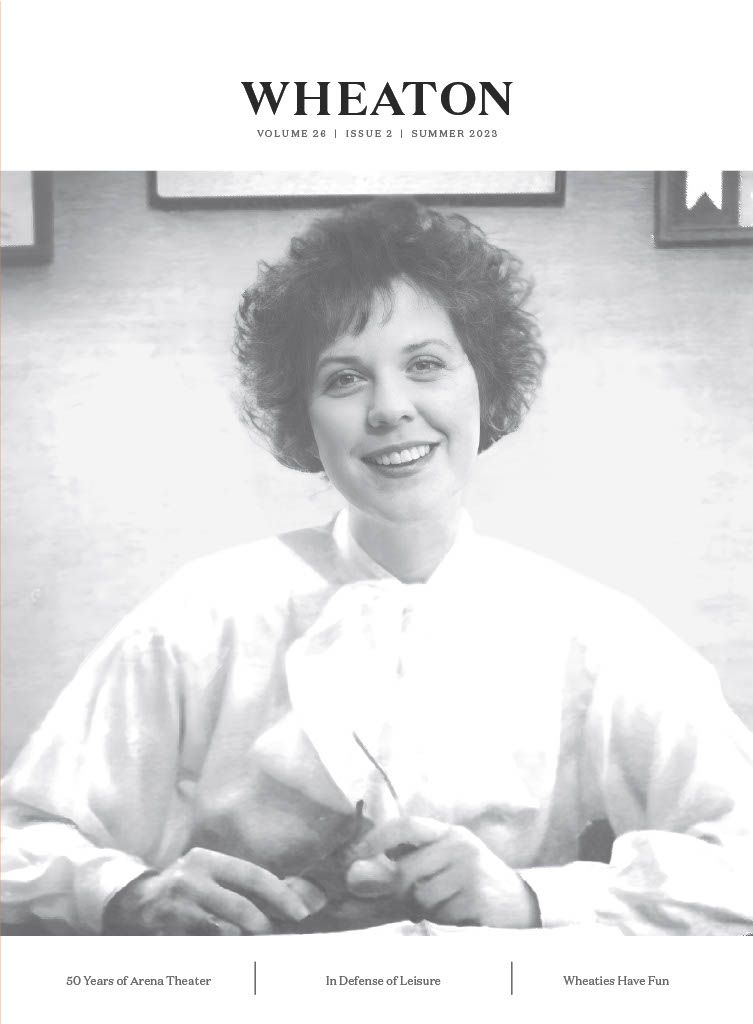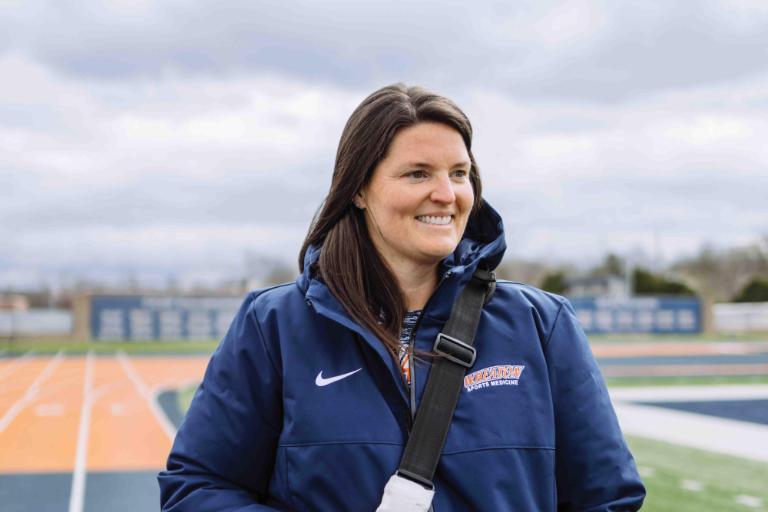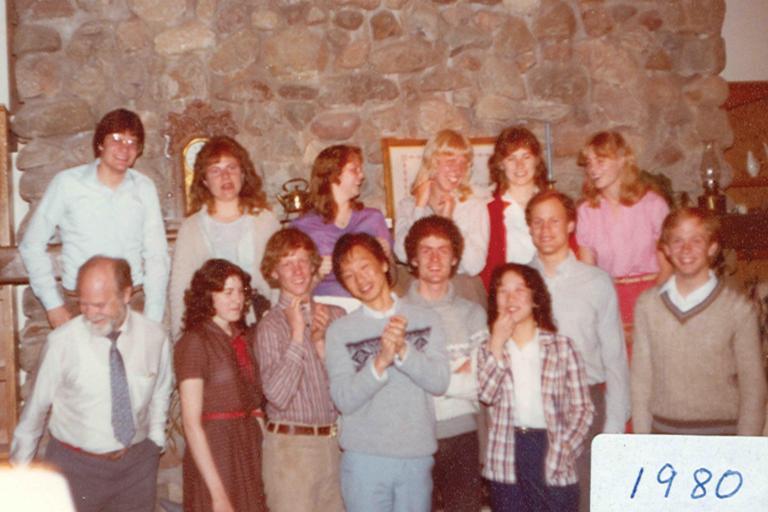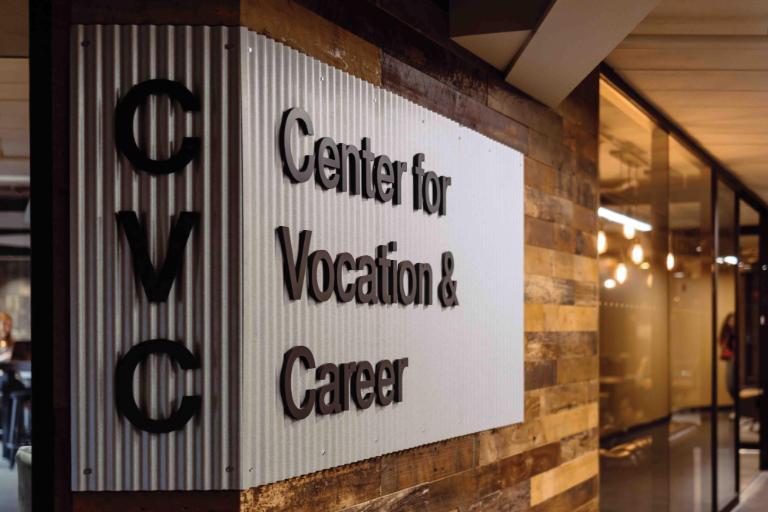Bearing One Another’s Burdens: Student Wellness and Community at Wheaton College
Words: Grace Kenyon ’22
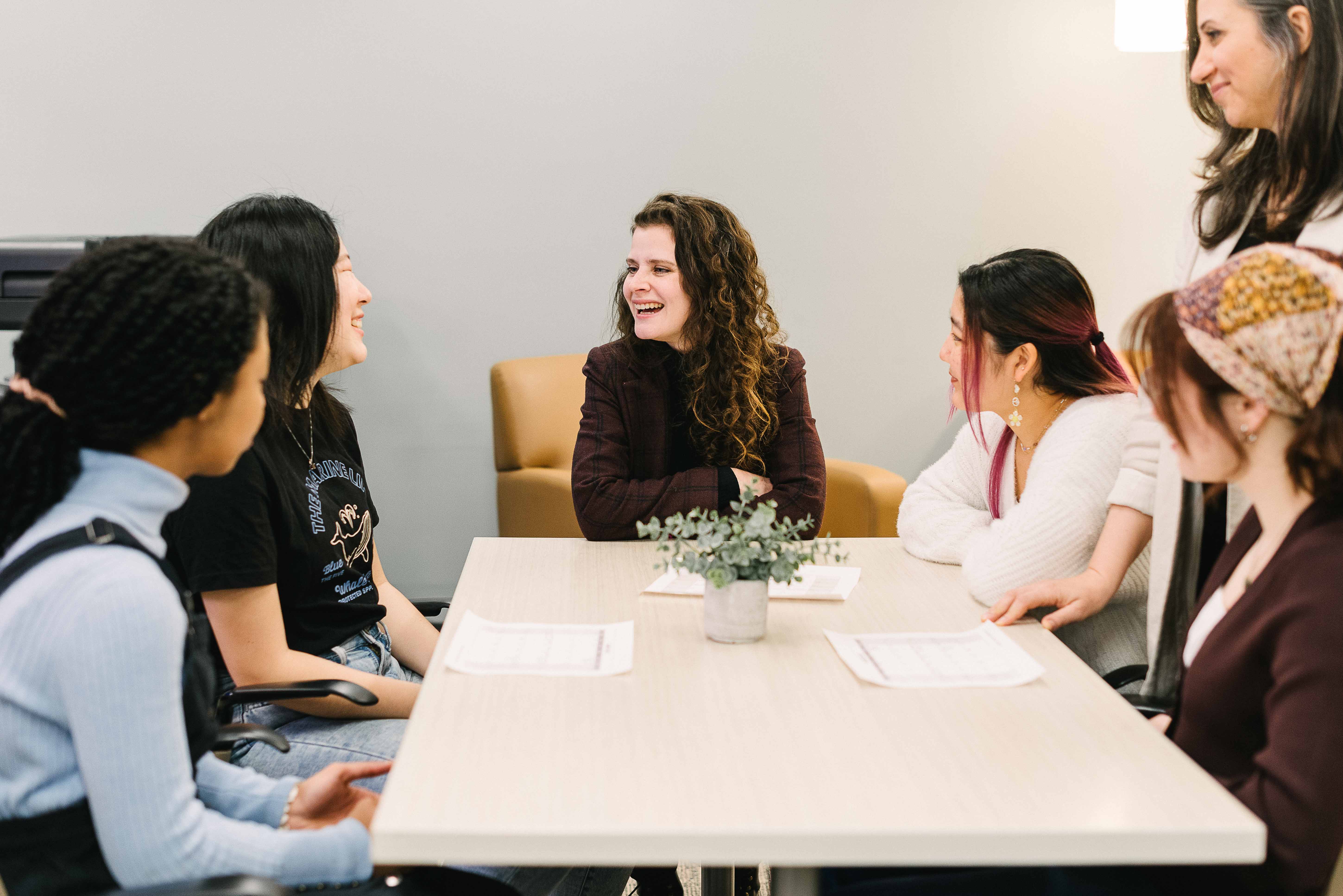
Staff meet with students in the Learning and Accessibility Services office.
Photo by Tony Hughes
One night, Michaela Liddle ’24 was driving a few of her friends to their dorm when she felt the urge to pray for them. At the time, she was president of Mu Kappa, a student organization for missionary kids (MKs) and third-culture kids (TCKs), and the friends in her car would be the vice president and president the following year. She pulled over and after she prayed, her friends responded in a way she didn’t expect.
“We know this year hasn’t been easy for you, but we also know that you do a lot for us, whether we see it or not,” she remembered them telling her. “And we just want you to know that we see you and we love you.”
It had been a hard stint as club president. Liddle mentioned many of her fellow cabinet members were overcommitted and busy. This was representative of much of her time at Wheaton: She thinks many students struggle to know when to care for others and when to care for themselves.
“It’s like that airplane metaphor,” Liddle said. “You have to put the oxygen mask on yourself before you put it on someone else, or you won’t be helping. That’s something a lot of students forget about.”
According to Dean of Wellness Dr. Toussaint Whetstone, wellness has always been an intrinsic value at Wheaton, which continues to grow and develop new resources to support its students. The full-fledged Office of Student Wellness includes services that intentionally address each facet of health: physical, mental, emotional, social, and spiritual.
“Student wellness is a deeply-held value at Wheaton that hinges on the enduring ideal that all students should be empowered to thrive in their individuality and in community for optimal living and learning,” Whetstone said.
Heart, Soul, Mind, and Strength
Staff in each of the student development offices know that a holistic approach to wellness is biblically founded. Kedisha Kelly, who works in the Chaplain’s Office as Ministry Associate for Spiritual Formation, pointed to the words of the Great Commandment—to love God and love neighbor—as evidence that God is concerned with the whole person, despite the tendency of many Christians to disembody spirituality by focusing on the cognitive aspects of faith.
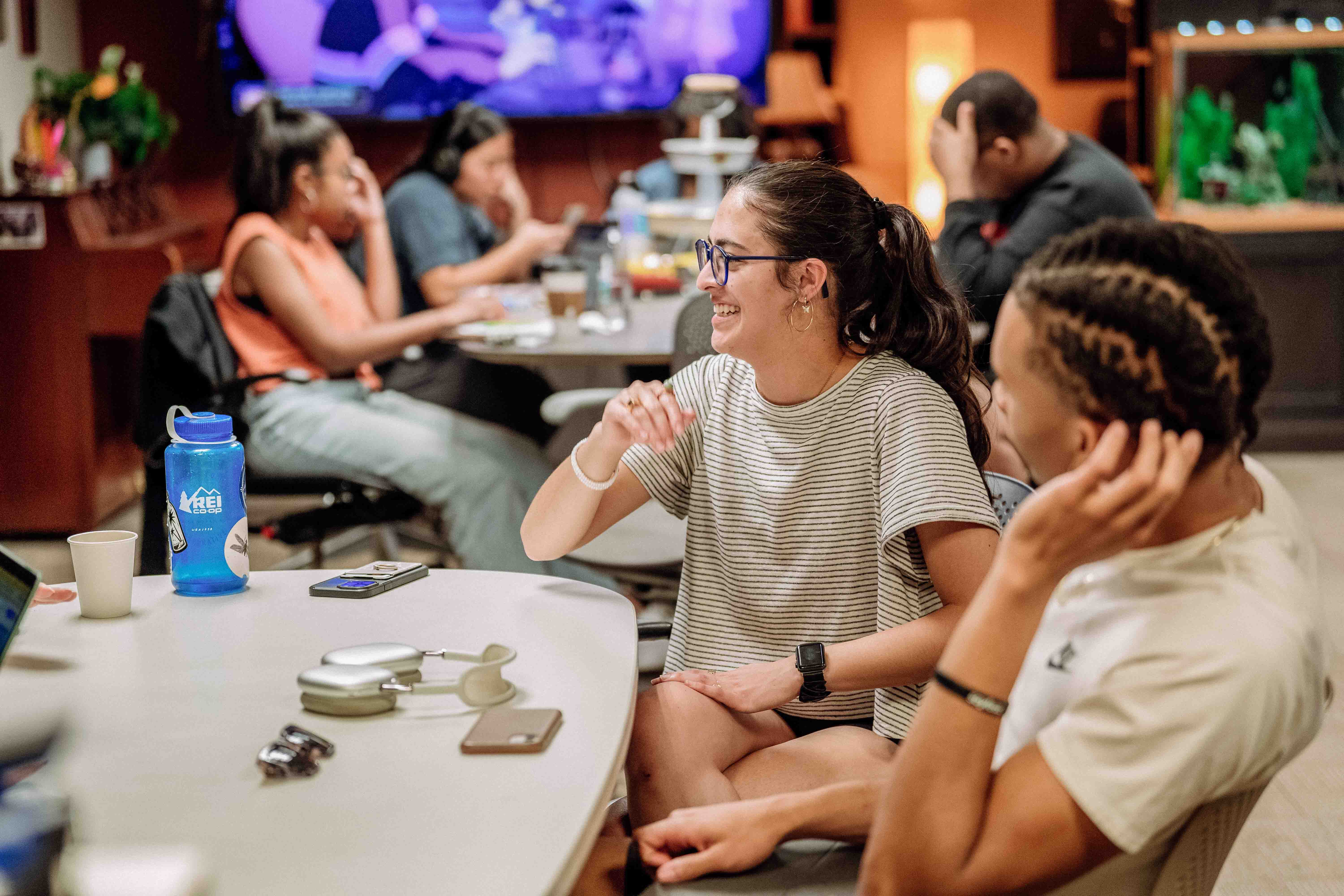
Students gather to study, collaborate, and catch up on life in the Office of Multicultural Development.
“Our entire being is something that God is interested in forming,” Kelly said. “When we don’t give attention to all the different areas that comprise our humanity, we hinder our own experience of God.”
Likewise, student services staff know that wellness goes well beyond the physical. Beth Walsh has worked in Student Health Services (SHS) since 2006, first as a nurse and now as director. She said her office works to meet students’ physical needs through both treatment and patient education, but they know that wellness goes deeper. They spend a lot more time with patients than a typical urgent care clinic would, taking time to do mental health evaluations and ask students about other parts of their lives.
“That’s one of the things that really sets us apart compared to other health care providers,” Walsh said. “We place a high value on knowing our patients and really looking at the whole person.”
Walsh cherishes the opportunity to get to know students. They have some students with chronic conditions who come into the office regularly, and the staff see many students improve mentally, physically, and spiritually over the course of a semester or a year.
Walsh also knows one of the most important aspects of student wellness: communication and connectivity between offices. Often students need a combination of resources.
“All our doors are open, and we’re going to get you to the right people,” Walsh said.
Emotional and Social Wellness: To Be Loved and Seen
A third-generation Wheaton student on both sides of her family, Michaela Liddle came to Wheaton knowing she would participate in Mu Kappa, which is housed under the Office of International Student Programs (ISP). Her dad works for the State Department, and she grew up moving around every few years, to Bahrain, Cambodia, Uruguay, Peru, and Poland. This lifestyle brought both amazing opportunities and big challenges. When she got to Wheaton, ISP and Mu Kappa helped her meet people with similar backgrounds that she may not have crossed paths with otherwise.
“I didn’t know just how much of a blessing that community would be,” Liddle said. “I felt like I was always wanted, always included.”
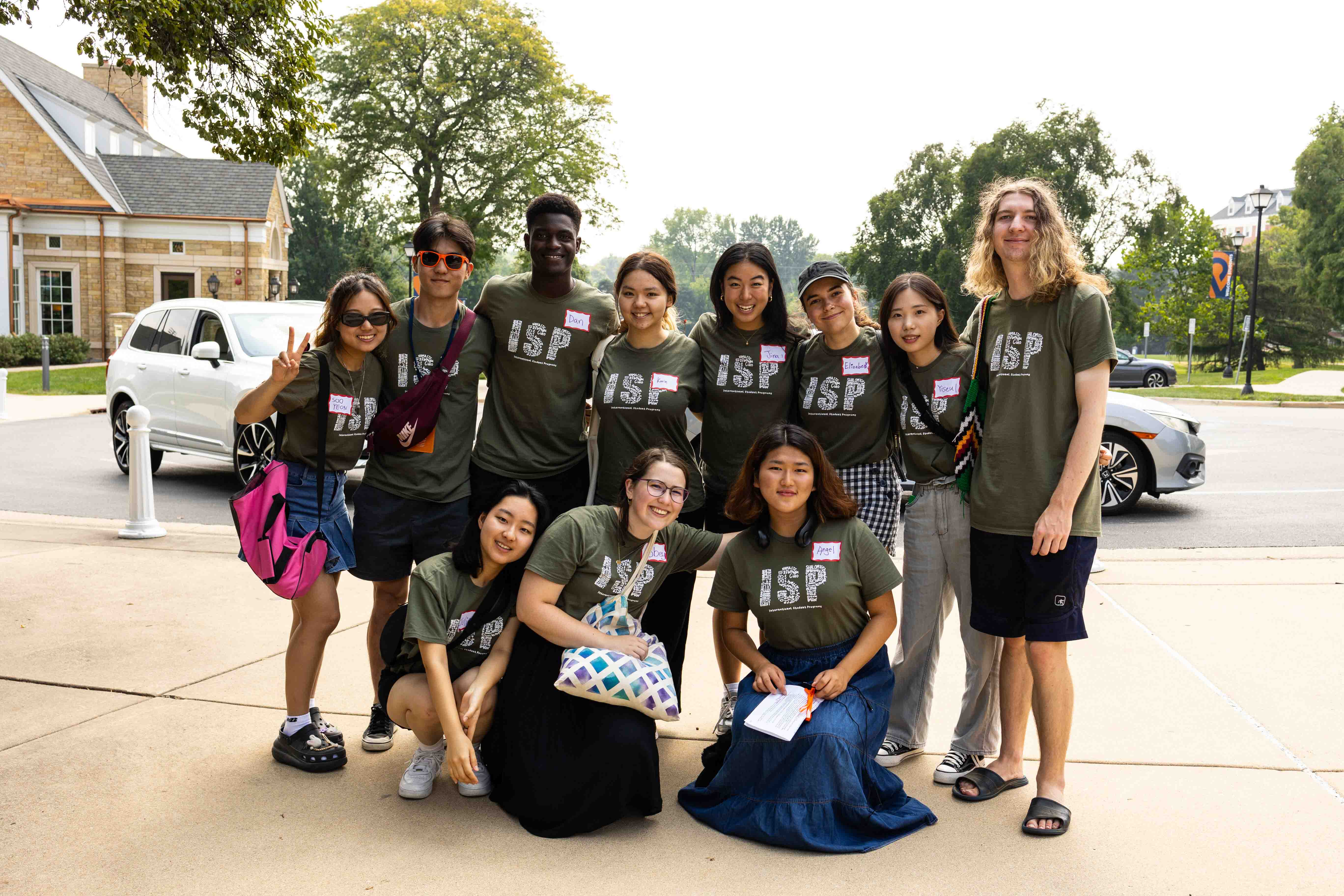
Student leaders from International Student Programs prepare to welcome first-years at orientation.
Photo courtesy of ISP
ISP started as a staff resource for international students and has grown to include student-led organizations and employ graduate assistants. Their mission is to be a receiving and sending place for MKs, TCKs, and international students who come to the U.S. on an F-1 visa.
According to Jerry Woehr, who is the second director of ISP since its official launch in 2014, ISP works to meet the unique needs of international students and students who have spent much of their lives outside of the United States. These needs range from helping students set up a working cell phone and bank account, to helping students who are adjusting to speaking English all day, every day.
Many international students adjust to a massive culture change from their home countries. It can also be difficult for them to contact their families because of time zone differences.
“There’s a sense of loneliness even though you’re surrounded by people,” Woehr said. “There’s a sense of disconnect that students feel fairly early.”
As a result, much of Woehr’s work is focused on helping students find a place where they don’t have to explain themselves constantly—where they feel at home and have peer leaders to walk alongside them. His team’s role is to meet and support students who are going through huge transitions in their lives.
“We want students to think, ‘I can always walk into the ISP, and my problems aren’t too complicated. My story is not too complicated. In fact, there are resources available for me specifically,’” Woehr said. “That creates an aspect of that wholeness or health that a student needs to successfully navigate life as a follower of Jesus and a member of his or her community—but also college life.”
When students are supported in this way, they are not only able to survive college life but also able to thrive. Woehr recalled the story of one student who had lived both in the U.S. and abroad. As a racialized minority, this student struggled to find a sense of belonging until they landed in ISP and student groups in the Office of Multicultural Development (OMD).
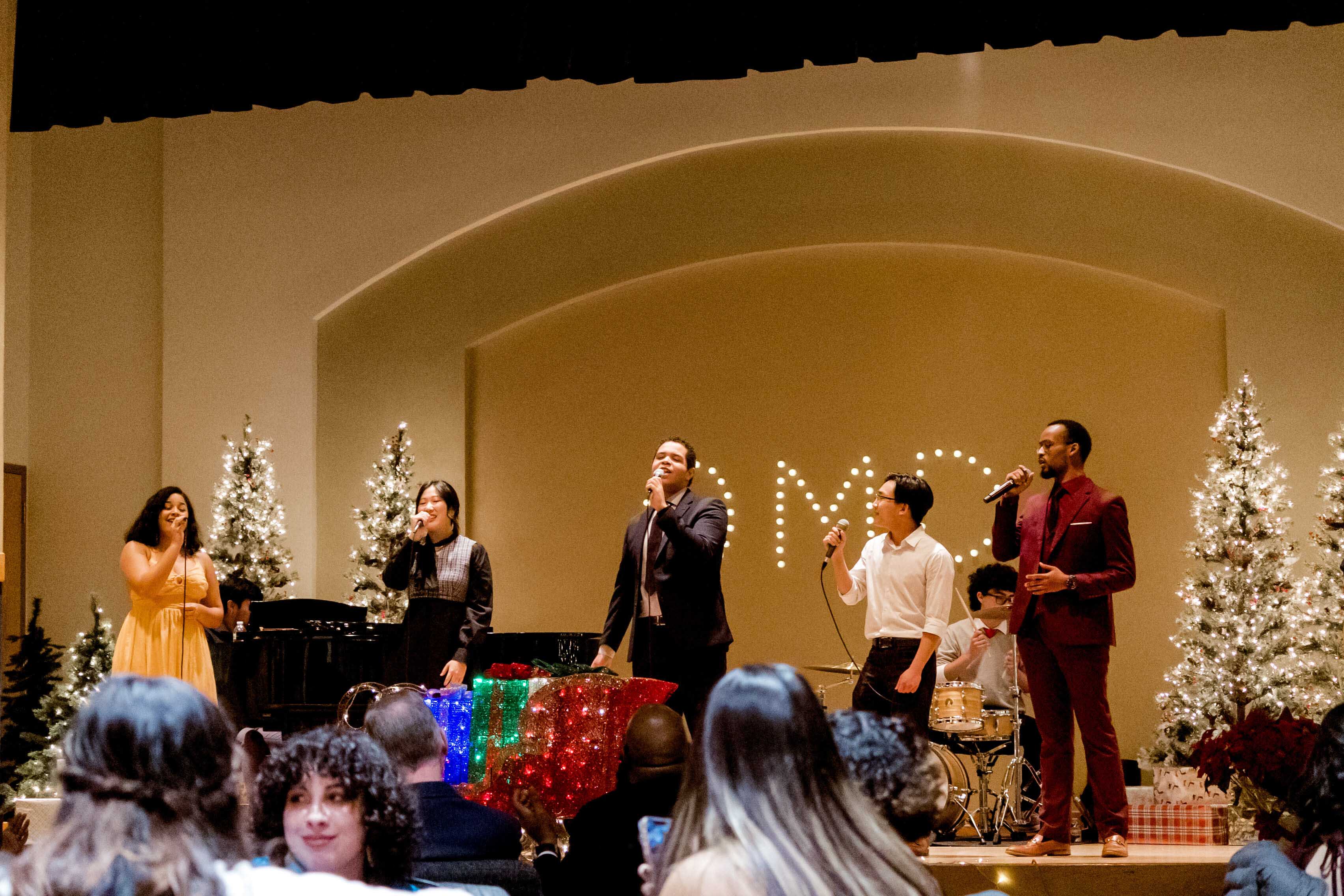
Student leaders perform Christmas songs at the annual OMD Christmas party.
“That person could actually be true to their full self, rather than feel like they could only offer a piece to others,” Woehr said. “And it was out of that sense of integrity—with who God created them to be and the opportunities that God gave them—that they were able to then feel confident in leading others, serving campus, and receiving what campus offered.”
Similar to Woehr’s work in ISP, OMD exists as a home for students interested in exploring racial and ethnic identity through a faith lens. Program staff members work to develop student leaders and help connect students to resources and other offices.
Although the OMD opens its doors to students of all backgrounds, it is especially geared toward minority students. As OMD Director Dr. David Cho describes, college life can be a uniquely uphill battle for many of these students. Some students may be dealing with stigma related to seeking mental health care or needing financial assistance, for example. Others experience isolation in other parts of campus and seek out the OMD as a home. His office works to address some of these challenges, whether through connecting them with students from similar backgrounds or helping address the self-doubt that can arise in a high-achieving academic environment.
“If we lean into Psalm 139, to try to honor the imago Dei, we see how everybody is ‘fearfully and wonderfully made,’” Cho said. “But for plenty of those who are at the margins of society, they may not pick up these keywords. We really try hard to instill and support that, providing holistic attention.”
However, the OMD resources are about more than just working through disadvantages. These opportunities for building community with one another also help students realize their unique skills and strengths and reach their full potential as whole persons.
“We strive to remind students that they each have unique skill sets and gifts that maybe other people don’t have,” Cho said. “We strive to walk alongside students and get them as acclimated to the campus as possible, and provide what might be necessary for the task at hand, to allow for those existing and future skills and talents to shine.”
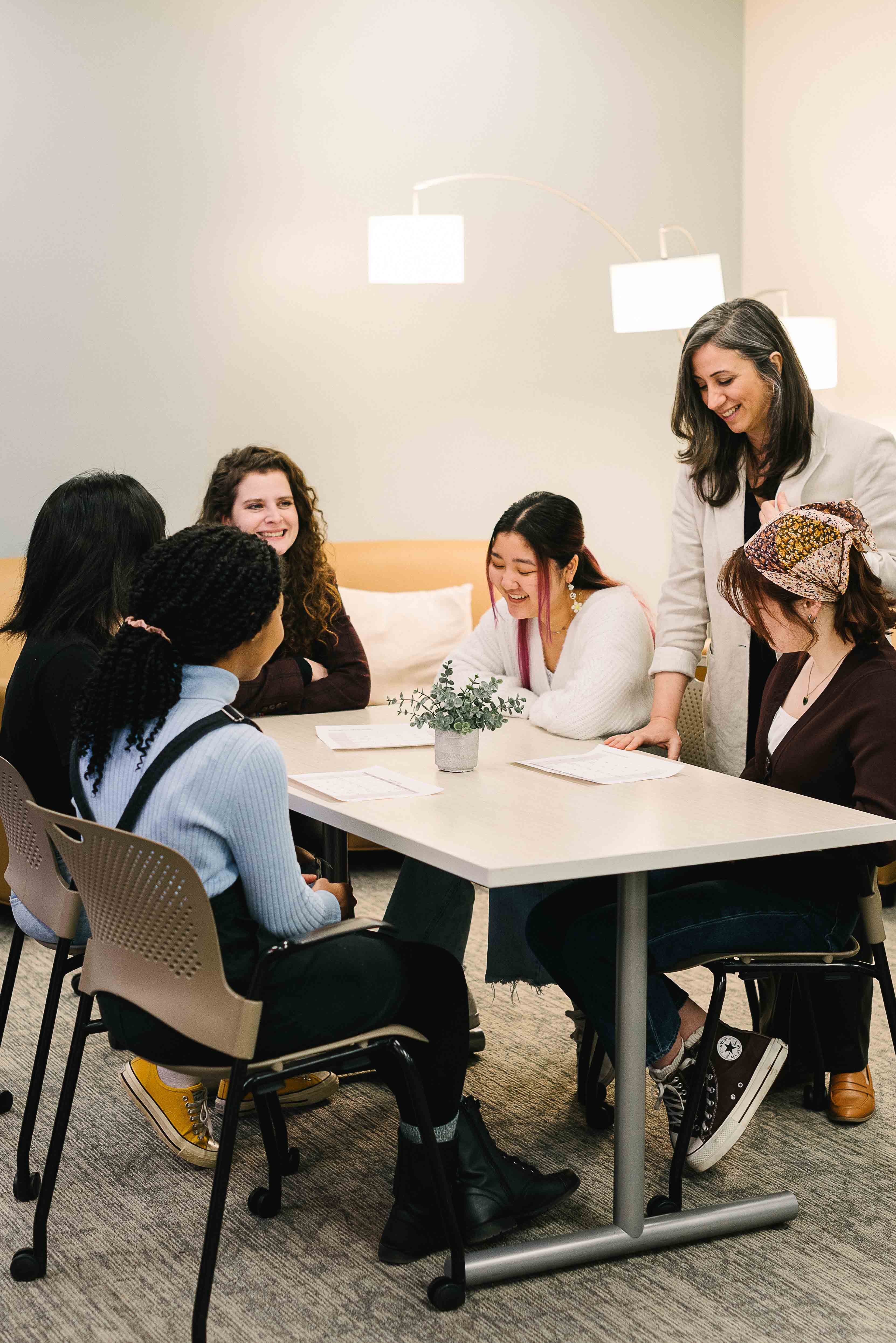
Melissa Norton and Joelle Merrifield speak with students in the Learning and Accessibility Services office space.
Photo by Tony Hughes
Grace Upon Grace
Several offices have adjusted their services to accommodate the changing needs of students in the fallout of the pandemic. For example, Director of Learning and Accessibility Services Melissa Norton, who came to Wheaton right as the pandemic began, recognized students struggling in new ways in and out of the classroom. Her office has adapted to students’ changing needs, aiming to meet them where they are. Or, as Norton puts it, “walking alongside students through challenges and seeing them through to the other side.”
The goals of LAS are twofold: to provide resources for academic success to all students and accommodations for students who need them, and for all students to flourish amid challenges and find belonging in their community. According to Norton, the challenges of college can be productive and formational, but her office wants to ensure those challenges are still manageable for students.
The Counseling Center also shifted its available resources because of changes in student needs, said Dr. Karen Hurula, Director of the Counseling Center. During the 2021-2022 academic year, the center saw an enormous influx of students seeking counseling services, and the staff was overloaded for the entire year. In response, they started offering same-day, single-session therapy appointments. These appointments are ideal for students who are wondering if therapy might be useful for them or students who just need someone to talk to without committing to consistent sessions.
“In the college environment, there are just a lot of firsts, a lot of changes, a lot of transitions, and a lot of adjustments,” said Hurula. “Same-day, single-session therapy meets that need really well.”
Over the last few years, Hurula has seen students become increasingly exhausted and overwhelmed. A lot of the Counseling Center’s work involved helping students let go of perfectionism and give themselves permission to “not do all the things.” College students feel pressure to achieve, Hurula said, but sometimes they truly need to do less.
“It’s about having the grace with yourself to allow your best to look different in different seasons of your life,” Hurula said. “We find a lot of students here who are just not ready to say they can’t do all the things they want.”
The theme of grace has taken hold in their office. Hurula has a sign on her wall that says “Grace upon Grace,” a reminder she says she needs for herself, as well. She believes many people come to Wheaton, whether as students or as staff members, because they see themselves as helpers. They mean well, but this means that some people struggle to ask for help, which is ultimately an expression of pride, she says.
“It’s also centering ourselves in the story more than God and what God is asking us to do,” Hurula said. “We define what our best needs to look like without really consulting God about that.”
“We Cannot Be Formed in Isolation”
The Chaplain’s Office leads discipleship ministries that guide students in living life together and Chapel services that help the entire campus connect with God corporately. This community approach is vital, Kelly said.
“A lot of how we experience God is through our relationship with others,” she added. “We cannot be formed in isolation.”
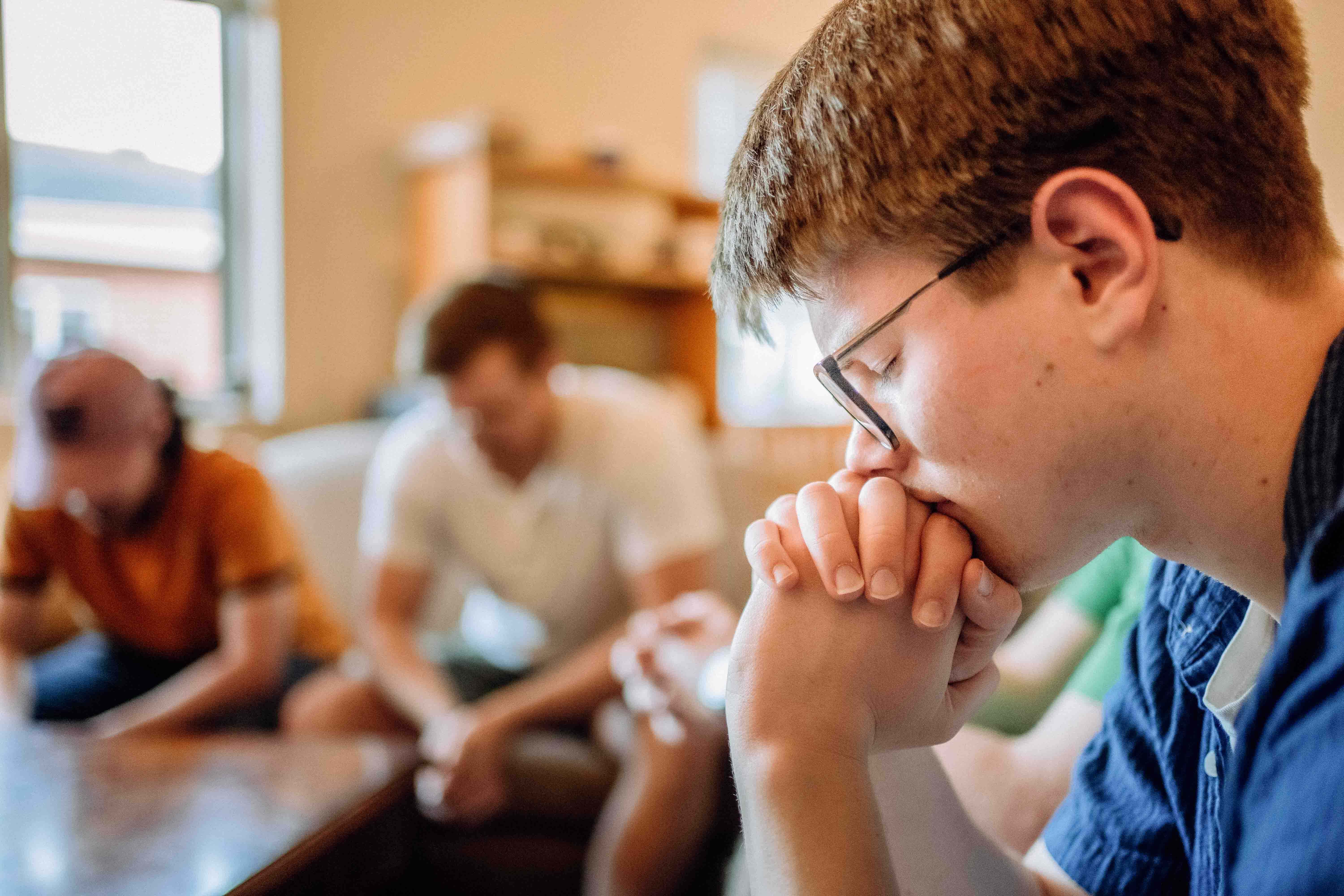
A men’s small group spends time praying for one another.
Likewise, Woehr argues that the mission of wholeness goes beyond staff and designated resources. He challenges all students to support one another through their time on campus.
“I really think it’s part of our Community Covenant to be a part of that wellness for one another,” Woehr said.
Joshua Pak ’24 experienced firsthand how students care for each other in community as both an RA and a small group leader. Many of the most powerful ways to care for others are also simple, he says. He remembers countless conversations and prayers offered in residence halls and many meals shared. He learned that sometimes there are no right answers and what people really need is presence. He learned to listen without judging.
During his time as a small group leader, Pak experienced deep friendships formed by being honest about brokenness and loving one another through it. These grace-founded relationships are not built on their own righteousness, Pak says, but can only happen because God loved us first.
“Hey, I see your brokenness, but I’m not going to run away because of it,” Pak often communicates to students. “We’re going to press into this, and I still love you.”
